Change is Coming
We are finally starting to see a significant decline in COVID-19 cases in the US. With that, we can expect the government relief efforts to start to fade as well. What changes can you expect? I’m glad you asked.
1. Student loan forbearance
The initial pause on federally-funded student loans, originally implemented in March of 2020, is set to expire in September of 2021. While there is a chance that the Biden administration will choose to extend this benefit to borrowers, it is not confirmed. Federal student loan borrowers should expect to begin repayment this fall.
2. Extended Unemployment benefits
Scheduled to end on September 6th, 2021. This benefit provides claimants with an additional $300 per week on top of the regular $400.
3. COBRA subsidy
On September 1, 2021, The American Rescue Plan benefit will end. It provided 100% of the cost for continuing health coverage (COBRA) to those who lost their jobs.
4. Eviction moratorium
Originally slated to expire in March of this year, the moratorium on residential evictions has been extended through June 30, 2021.
5. State benefits
Each state likely has its own additional assistance programs available. As health mandates begin to ease, some states are choosing to cut certain COVID-related programs. Check your state’s programs to see which ones are still available and which will be ending soon. Some examples are expanded SNAP eligibility, child care subsidy, child meal programs (often provided at schools), WIC, utility assistance, and more.
What relief is still available?
1. Funeral Assistance
FEMA is going to continue to assist with funeral expenses to families who have lost loved ones due to the pandemic. You can learn more by visiting their FAQ site.
2. Child Tax Credit Payments
Our last Blog was all about the changes to the Child Tax Credit and the monthly payments that parents of qualifying dependents can expect to receive between July and December of this year. You can click here if you need a refresher.
3. Tax-Free Unemployment
The additional unemployment benefit may be going away, but you can still expect the first $10,200 of unemployment benefits to be tax-free when you file your taxes next April (if you make less than $150,000 annually).
4. Health Insurance
As part of the American Rescue Plan, health insurance premiums were reduced or eliminated for lower and middle-income families. You can expect this to stay in place for at least the remainder of 2021.
5. Free Vaccinations
Anyone who wants to be vaccinated against COVID-19 can do so at no cost. There are also resources available to provide free transportation to vaccine sites. Down the road, there will likely be a cost for these vaccines, so if you are considering getting one, you might want to get it now while it is free of charge.
6. Small Business Benefits
Small businesses can still benefit from a variety of COVID-related grants. This is particularly beneficial to businesses located in economically disadvantaged areas and minority-owned businesses.
7. Vaccine Lottery
If you live in one of five (so far…) states (California, Kentucky, Maryland, New York, and Ohio), you may be rewarded for rolling up your “sleeve” to get vaccinated. In California, you have a chance to win a grand prize of $1.5 million. If you are getting vaccinated in Kentucky, you will walk away with a free lottery ticket. Maryland will host $40,000 daily lotteries for 40 days, with a $400,000 drawing at the end on July 4th. New York unveiled a scratch-off ticket with a grand prize totaling $5 million. In Ohio, there is a $1 million per week drawing for five weeks. Vaccinated minors, if chosen, can walk away with a full scholarship to an Ohio state college or university. For those of you who are not residents of these five states, you can still enjoy the perks of vaccination – aside from a boosted immune system. Krispy Kreme will give you one free donut every single day until the end of the year. Bring your vaccine card with you.
Do you have more questions about the COVID-related assistance programs? Leave a comment below or email me.
Krista Kyte is a personal finance blogger and personal banker with over 18 years of experience in the financial industry. Krista is passionate about helping our members understand their financial situations. She writes tips that will help consumers reach and maintain financial security, and start living the life they’ve always wanted.





